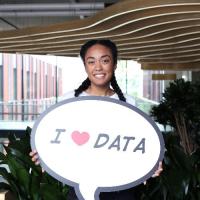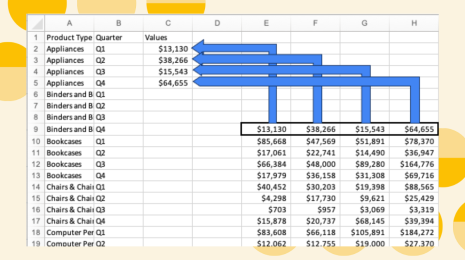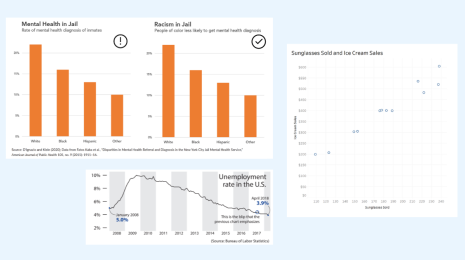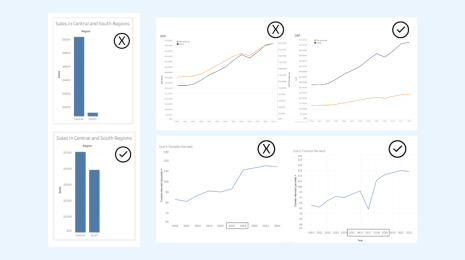Tableau can enhance your soft skills
Are you gaining the right skills to be successful in the modern workplace? Studying sets you on a path to learning hard skills—the specific technical know-how you need to do your job well. While these skills are essential, today’s employers seek more. Increasing importance is being placed on soft skills—personal attributes that enable you to interact well with other people. According to Harvard Business Review, “the need for social and emotional skills including initiative-taking and leadership will rise sharply, by 24%, and among higher cognitive skills, creativity and complex information and problem-solving will also become significantly more important.”
As a current undergraduate student, it seems that identifying where to focus skill development is on everyone’s minds—including my own. During my Tableau marketing internship, I have seen firsthand that the workplace landscape is increasingly digital. Technical skills that include data analysis and Tableau have seen a rise in demand—analytical reasoning was ranked the #3 hard skill companies need most in 2019. But we can’t forget about developing our soft skills.
According to LinkedIn, “strengthening soft skills is one of the best investments you can make. Even with AI on the rise, nothing will replace human-to-human conversation.” Creativity topped LinkedIn’s list at number one, followed by persuasion and collaboration. Tableau’s campus recruiter, Kari Stickel put it simply: “We view data skills as more of a mindset than anything. Regardless of the information that you’re analyzing, we see someone with this skill set as naturally curious and passionate about solving problems.”
Kari points out that natural curiosity and passion play a role in the modern and digital workplace. Your data is only as good as the questions you ask of it, so ask the right questions! In my research, I found soft skills translate across job functions and industries. In the age of data explosion, “companies are hungry for professionals who can make smart decisions based off of [data]” (LinkedIn). Here are some ways you can use Tableau to highlight your professional strengths and soft skills:
Creativity
Creativity matters, like, a lot. It demonstrates an ability to think outside of the box and problem solve. An open mind is what differentiates average ideas from innovative ones. In Tableau, demonstrate your creative approach to understanding and analyzing data. Matt, a former student at Northwestern University, views Tableau as a dynamic tool. He states that it shows “not only my technical know-how but also my creativity through how I build and design dashboards.” Matt is convinced that showcasing his creativity “had a really big impact on [his] application, and essentially got [him his] job interning [at Spotify] last summer.”
Matt participated in the Student Viz Assignment Contest to show his creativity in how to visualize data and music. Take a page from Matt’s book, and elevate your vizzes to a new creative level.

Explore winning entries from the Student Viz Assignment Contest.
Persuasion
In the workplace, expect sometimes to encounter resistance. Despite what Burger King promised, you can’t always have it your way. But don’t let that stop you from trying! Strong leaders need to rally support and convince people to follow them—leverage logos, ethos, and pathos to create persuasive vizzes. One tip is to avoid chart junk and clutter; this helps to make your point clear. Billy Wang, a student at Tsinghua University, made a visualization in Tableau to persuade people to donate to a cause important to his heart —Leukemia (featured below). Tableau helped him to crowdfund online and “eventually exceeded [his] goal of 5,000¥.”
Storytelling with data and visual best practices are an important skill to supplement learning the art of persuasion. Explore some of the best data visualization blogs to follow.
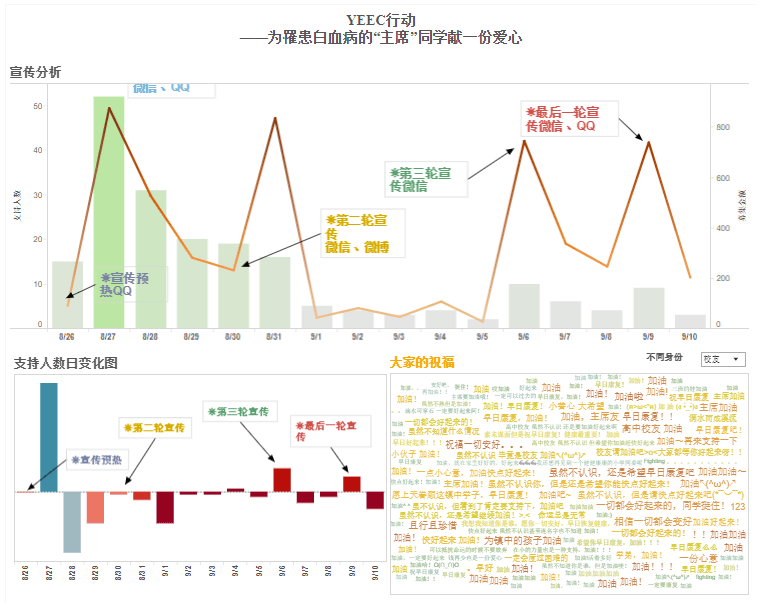
Crowdfunding for classmates who have leukemia viz, created by Billy Wang.
Collaboration
Teamwork doesn’t end after graduation. Odds are, you’ll collaborate with coworkers frequently in your job. Collaboration is meaningful because it promotes inter-learning, self-awareness, and synergies. Tableau is built for collaboration. Billy Wang remarked that participating in challenges like Makeover Monday enabled him to “interact with new people of different mindsets...and further sharpen [his] skills.” Use Tableau’s community to engage with others and hone in on this essential soft skill.
Check out Tableau Public to see what others are creating, popular data topics, and publish your own data visualizations for free.

Creating an interactive resume with Tableau shows employers your data skills in a fun and interesting way.
Many students give Tableau credit for opening up opportunities, internships, and even full-time jobs. Remember, a Tableau viz isn’t just a viz, but also a representation of everything you can do (technical and otherwise).
So show off your data skills and your soft skills to stand out in the competitive job market. Earn a Tableau Desktop Certification while you’re at it. By integrating creativity, persuasion, collaboration, and other soft skills in your use of Tableau, you can distinguish yourself as the #datarockstar that you are.
Join the students of Generation Data and download your free Tableau for Students license today to start learning data skills.
